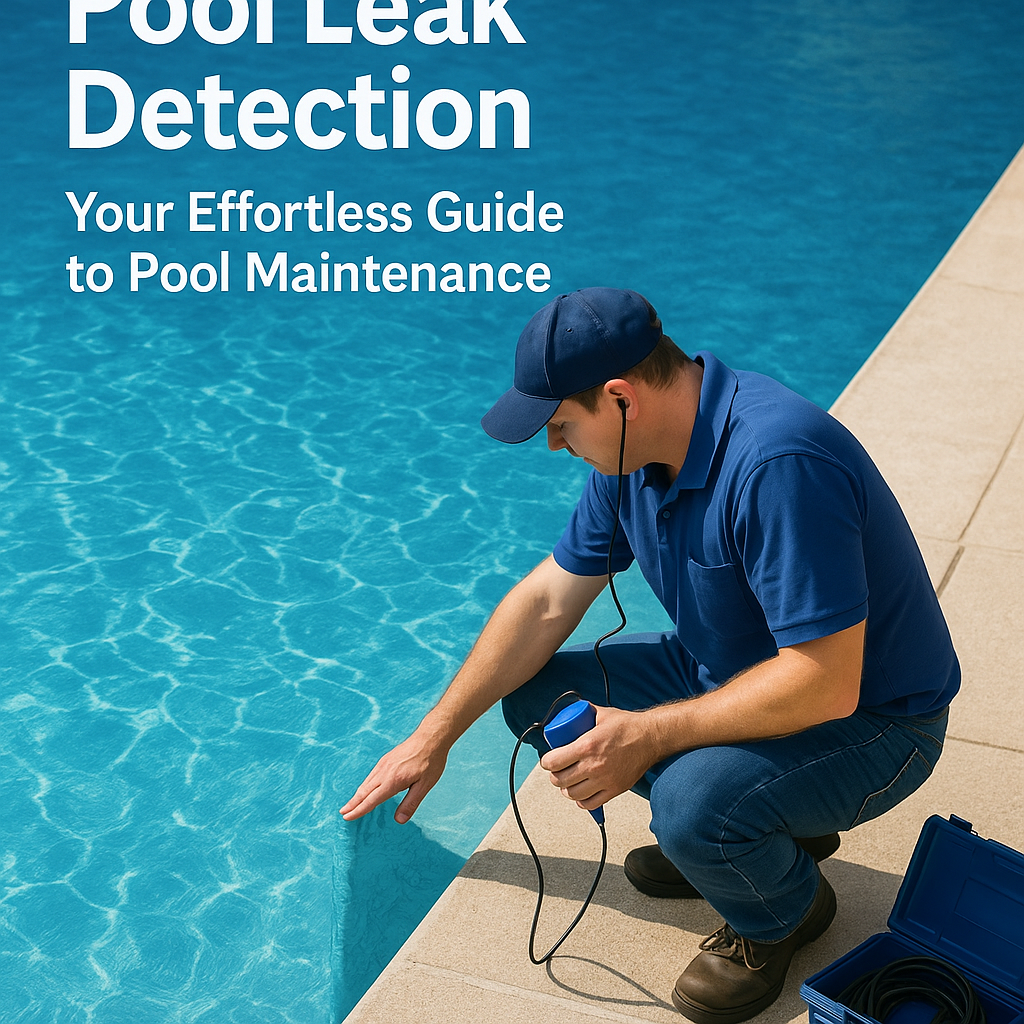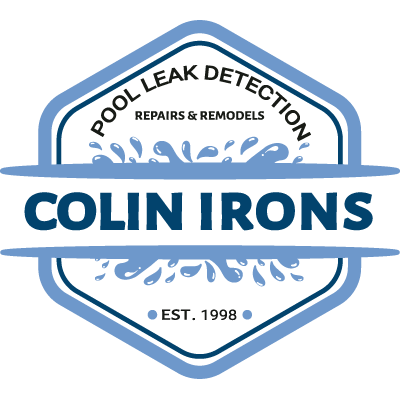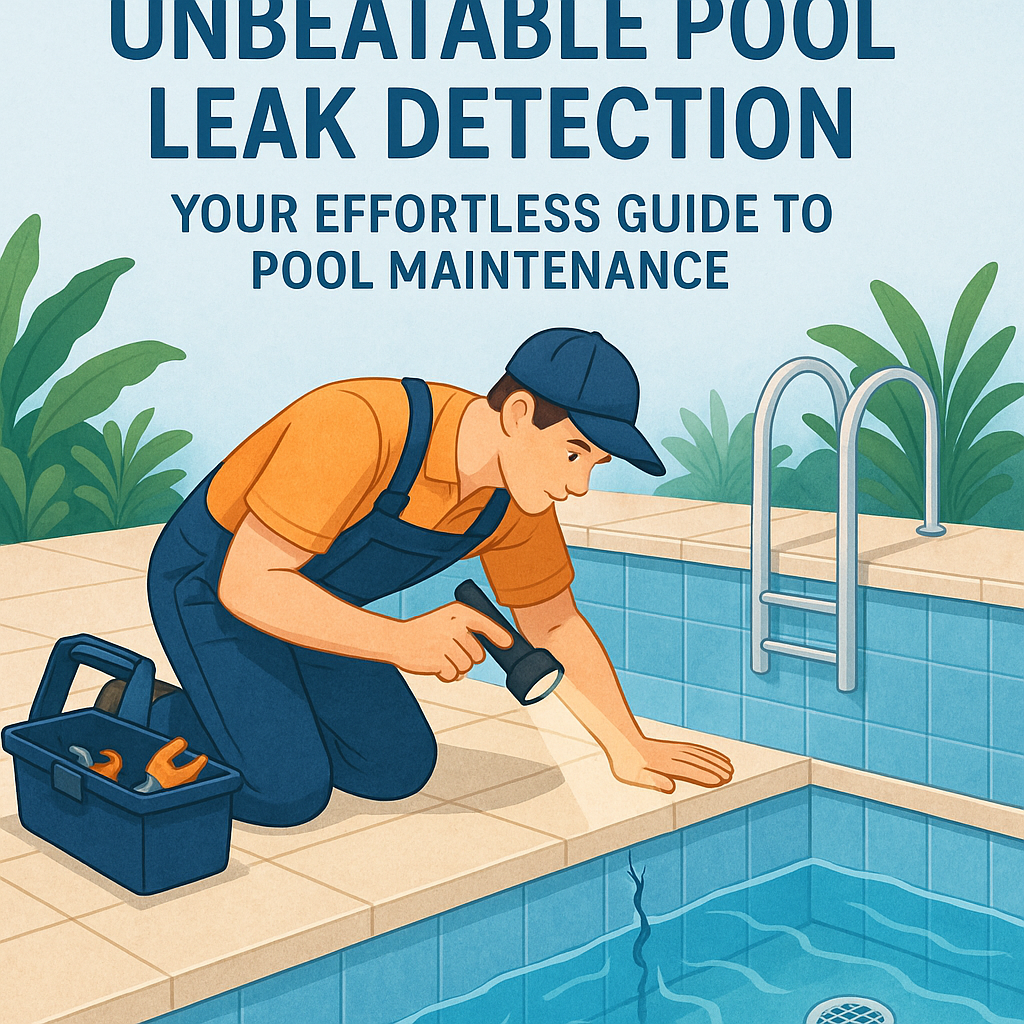Pool leak detection is crucial in maintaining the integrity and longevity of your swimming pool. If you own a pool, it’s safe to assume that you’d like to enjoy it hassle-free. An unaddressed leak can lead to substantial water loss, increased water bills and significant damage over time, negating all the fun and relaxation that a pool should offer. This comprehensive guide is designed to equip you with simple yet effective techniques for pool leak detection, pool leak repair, and general pool maintenance.
The Basics of Pool Leak Detection

The pool leak detection process begins with a simple, yet critical, observation: Does the water level in your pool decrease drastically over a short period?
Naturally, pools lose water due to evaporation and splash-out – however, this water loss is generally only about ¼ inch per day. If the water level drops at a faster rate than this, it could signal a leak.
So, how do you know if your pool has a leak and not just natural water loss? A simple bucket test will usually suffice. Fill a bucket halfway with pool water and mark the water level inside the bucket and the water level outside. After few days, if the water outside of the bucket has decreased more than the water inside, this confirms the pool leak detection.
However, note that a bucket test isn’t always 100% accurate since many variables, such as temperature and wind, can influence the rate of evaporation. It is always recommended to seek assistance from pool maintenance professionals for a more accurate analysis.
The Importance of Timely Pool Leak Repair
If pool leak detection indicates a problem, immediate pool leak repair is essential. A leak left unfixed can strain your pool equipment and lead to more costly repairs down the line. It may cause erosion around your pool, potentially leading to a sinkhole and destabilizing your pool’s structure.
Furthermore, the water leaking from your pool can make its way into the groundwater system, potentially contaminating drinking sources and nearby plants. Thus, timely pool leak repair not only saves you money but also contributes to protecting the environment.
Pool Leak Repair: Do It Yourself or Hire a Pro?
When faced with a pool leak, some pool owners may choose to try a DIY repair. Smaller leaks are usually identifiable and can sometimes be repaired using specialized pool putty or epoxy. But be aware that this is often a temporary solution and the leak may reappear over time.
However, do remember an essential rule: If you’re uncertain or it’s a significant leak, bring in a professional. They are equipped with specialized electronic leak detection equipment that can find the smallest leak. They also have the know-how to repair any leak, ensuring it’s done right the first time, potentially saving you time and money in the long run.
Comprehensive Pool Maintenance: Your Key to a Trouble-Free Pool
Regular pool maintenance is the best way to avoid faults like leaks and keep your pool in an optimal condition. Professional pool maintenance services generally include monitoring water chemistry, cleaning skimmers and pump baskets, scrubbing pool walls, and checking the filtration system.
However, you can still perform some basic pool maintenance tasks on your own. Regularly skimming leaves and debris off the water surface, maintaining the correct pH level of the pool water, keeping the decking area clean, and inspecting pool equipment for any signs of wear or damage can go a long way. These tasks not only help you spot any potential issues early but also ensure the longevity and premium condition of your pool.
The Bottom line
While owning a pool is no small investment, its joys, entertainment, and relaxation compensate more than enough. With essential knowledge about pool leak detection, pool leak repair, and regular pool maintenance, you can indeed relish those benefits while keeping troubles at bay. Remember, maintaining your swimming pool is far less work and cost compared to fixing significant faults that come from neglect. So, embrace your role as a responsible pool owner, keeping your pool in its perfect state while ensuring its longevity.


